Natural Gas Safety
Downed Lines. Natural Gas Odor.
Call
Illinois 800.755.5000
Missouri 800.552.7583
Natural Gas Safety
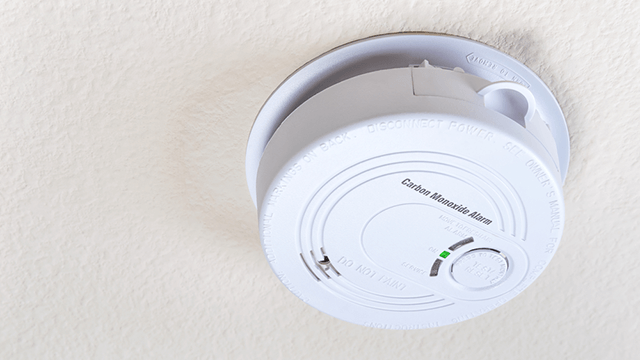
Some visible indications of the presence of carbon monoxide are: black soot around air registers, moisture inside windows, dead or dying houseplants or pets and abnormal-looking flames on appliances or burners.
If you suspect carbon monoxide poisoning, vacate the area immediately to get fresh air and call 911.
Safety Tips
- Vents on outdoor walls should be kept clear of snow accumulation, debris, landscaping or other blockage.
- Purchase and install a UL-rated residential carbon monoxide detector. Detectors can be purchased at hardware stores, and many can be plugged into an ordinary outlet.
- Never operate your car or other natural gas-powered engines in a confined or enclosed space, such as a garage, because the car exhaust can leak into the house, even if the garage door is left open.
- Before each heating season, have your heating system and appliance vents and ducts checked by a qualified heating and ventilation service contractor.
- Check your chimney to make sure it is not blocked by dirt or bird nests. Replace rusted vent pipes.
- When using an approved unvented space heater for supplementary heat, open a window an inch or more as stated in the space heater operating instructions.
- Contact the Illinois Poison Control Center at 800.942.5969 or the Missouri Regional Poison Center at 800.222.1222, ventilate the structure by opening windows and doors, then leave the premise if you suspect carbon monoxide in your home.
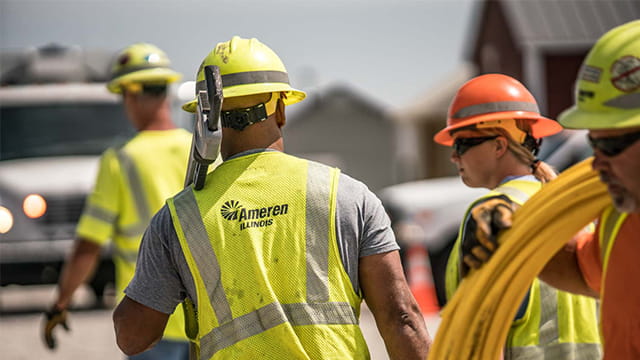
To help minimize sidewalk and landscaping damage, Ameren often uses horizontal or trenchless boring to install new natural gas lines. Sometimes these lines can be inadvertently installed through a sewer line outside a home or business. When this occurs, it is called a natural gas cross bore. The cross bore damages the integrity of the sewer line and can eventually lead to sewer backups. If a natural gas line is cut or nicked while attempting to correct the sewer backup, the resulting natural gas leak can create a serious hazard.
What is Ameren Doing?
Ameren has implemented a proactive cross bore safety program to inspect sewer lines where trenchless methods were previously used to install natural gas lines. The objective is to identify and correct these cross bores before they create sewer issues. When Ameren installs new natural gas lines using trenchless methods, additional steps are taken to prevent the installation of new cross bores.
If you Experience a Sewer Backup
A clogged sewer line may be the result of a cross bore with a natural gas line. Take precautions before any sewer cleaning. Ask your plumber or contractor to use a camera to assess the cause of the blockage and clear the sewer using a plumbing snake or water jet rather than a cutting tool.
If You Identify a Natural Gas Cross Bore
Call Ameren Illinois at 1.800.755.5000 or Ameren Missouri at 1.800.552.7583 to alert Ameren that you have identified a natural gas line cross bore. We will safely remove the natural gas line and make any necessary repairs.
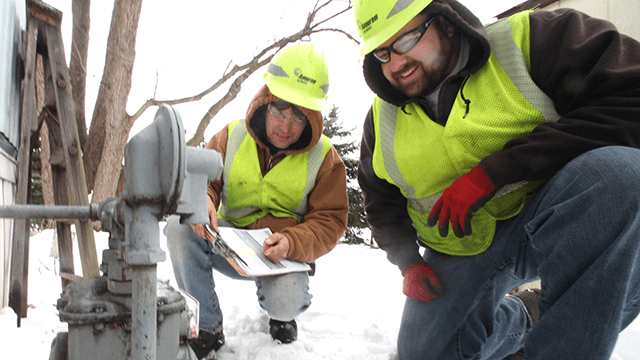
Generally, the cost to the customer to have Ameren install an excess flow valve ranges from $800 to $1,500. The process of installing the excess flow valve requires digging to expose the natural gas service line where it connects to the natural gas main. While the work typically takes no more than one day, restoration of the excavation site may take longer.
Not every natural gas service line can accommodate an excess flow valve. We will inform you if for some reason an excess flow valve cannot be installed.
For additional information, or to schedule an appointment, please contact Construction Services to speak with a representative.
Ameren Illinois Construction Services
- Call 888.659.4540
- Email IllinoisConstruction@ameren.com
Ameren Missouri Construction Services
- Call 866.992.6619
- Email ConstructionHotline@ameren.com
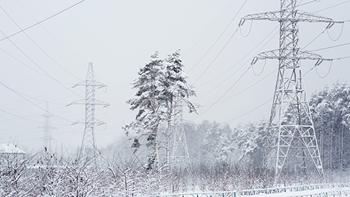
Flood and Tornado Safety
Natural disasters can lead to hidden hazards related to your utility service. If your home suffers structural damage, and you smell or hear the sound of escaping natural gas, immediately evacuate the premises, then call 911 and Ameren Illinois at 800.755.5000 or Ameren Missouri at 800.552.7583.
- Do not attempt to relight any appliance or pilot lights.
- Do not turn lights on or off, operate thermostats, garage door openers, appliances or anything that could cause a spark.
- Do not use a phone or light a match inside or near the building.
- Do not open windows or doors to ventilate the building.
- Do not re-enter the property for any reason until Ameren personnel tell you that it is safe to enter.
Ameren personnel will restore natural gas service when it is safe to do so. In the case of flooding, if an electrical or natural gas appliance has been in contact with water, have a professional check it before you attempt to use it.
Dangers of Abnormal Snow and Ice Build-Up
Above ground natural gas facilities such as meter sets, valves and regulators must be kept clear of snow and ice. Snow and ice build-up can cause excessive stress on facilities and block vents causing equipment malfunctions and limit access to emergency equipment.
- All exhaust and combustion air vents for natural gas appliances must also be kept clear of snow and ice for your gas equipment to operate properly.
- Use a broom to keep natural gas meters and piping clear during the winter.
- Never use a shovel, ice chipper, pole or similar tool or even hit your natural gas meter or piping as this may damage equipment.
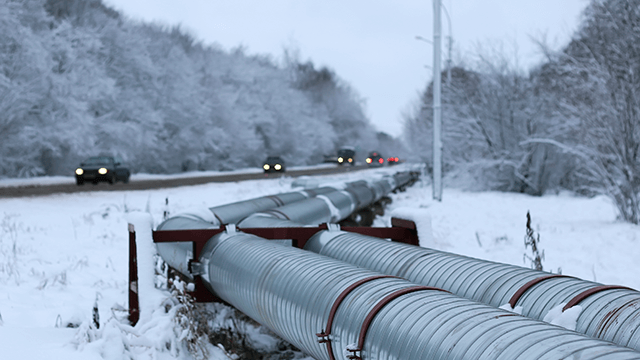
Call or Click Before You Dig
A key element in pipeline safety is a national One Call program that offers anyone who may dig a free service to mark the location of underground utility-owned facilities. Both Illinois and Missouri laws require anyone digging, regardless of the depth of the project, to call the locating service for their area. If you dig without calling One Call, you could cause injury to yourself and others, and potentially disrupt utility service to an entire neighborhood. You may even have to pay fines and repair costs. Whether you’re planting a tree or setting a post, contact the Illinois or Missouri One Call System by calling 811 before any digging project. The service is free, and it’s the law.
- In Illinois, this service is called JULIE (Joint Utility Locating Information for Excavators). To contact JULIE, call 800.892.0123 or make your request online. Your notice to dig must be made at least 48 hours (two working days) before excavation starts, and the project must begin within 14 calendar days from the call to JULIE.
- In Missouri, this service is the Missouri One Call System (MOCS). To contact MOCS, call 800.DIG.RITE (800.344.7483) or make your request online or through their mobile phone app. Your notice to dig must be made at least three working days, and not more than 10 working days, before excavation is to begin.
Accidentally Hit a Gas Line?
Excavation damage is the biggest threat to pipeline safety. It is the law to call 811 and notify the One Call System before you dig. If you damage a natural gas line while digging:
- Immediately move a safe distance away, going upwind of the leak.
- From a distance, call 911, 811, and Ameren Illinois at 800.755.5000 or Ameren Missouri at 800.552.7583.
- Ameren responds to natural gas leaks 24/7 at no cost.
- Keep everyone away from the site until Ameren arrives.
- DO NOT use anything that could generate a spark.
- DO NOT attempt to repair or backfill any damaged pipeline.
- Even if the hit natural gas line is not leaking, it is still very important to report scratches, nicks or gouges and locate broken wires immediately.
Customer-Owned Gas Lines
Ameren owns and maintains the natural gas pipelines that run to your natural gas meter. However, some customers also have buried natural gas piping that runs from the meter to outdoor natural gas-burning appliances, such as a heater in a pool or detached garage, a permanently installed natural gas grill, a natural gas light, or the natural gas fuel line from your meter that goes underground before entering a basement or crawl space. This piping belongs to the property owner. Ameren does not maintain the piping nor will the One Call System locate customer-owned piping.
Customer-owned natural gas piping should be periodically inspected by a qualified professional for leaks and corrosion if piping is metallic. Have any necessary repairs made if an unsafe condition is found. When excavating near buried natural gas piping, the piping should be located in advance and excavation done by hand. Always call 811 before you dig.
Damage Prevention
Ameren is always working to protect our communities and serve as a reliable resource within the excavation community. Due to excavation damage being the biggest threat to pipeline safety, Ameren is involved in the investigation and documentation of natural gas damages, the accuracy of utility locate marks, excavation performance in respect to state laws, excavation activities near high profile natural gas facilities, excavators who are at fault of damages, and communication between utility locators and excavators. If you notice someone digging without utility locate flags, painted marks or painted stakes, report it by calling 811; Illinois 800.892.0123 or Missouri 800.DIG.RITE (800.344.7483).
- Follow manufacturers’ directions or manuals for using and taking care of natural gas appliances. Seek qualified contractors help when necessary.
- Have a fire extinguisher near any natural gas appliance. Use a carbon dioxide or a dry-chemical extinguisher for natural gas kitchen appliances.
- If your natural gas appliance does not have an automatic igniter, always keep the pilot light on the natural gas appliance lit. If you extinguish it without turning off the natural gas supply, a dangerous natural gas build-up can occur and possibly result in an explosion.
- Look for a certification seal when purchasing a new natural gas appliance. This ensures that the equipment design meets strict safety standards.
- Never use your natural gas range to heat your home or apartment. The carbon monoxide fumes can put your family in serious risk of carbon monoxide poisoning.
-
Have your natural gas fireplace routinely serviced to ensure proper working order. Have a professional:
- Adjust millivolt output.
- Clean and adjust the glowing embers and logs for best appearance.
- Clean the fan and related air circulation passages.
- Clean the glass.
- Check the batteries in the carbon monoxide detector.
- Ensure vents are unobstructed.
- If you experience a natural gas service outage or you suspect a natural gas leak, leave the building immediately, then call Ameren. Do not open or close windows, turn any electrical device or light off or on, or use any other device that could cause a spark.
- Make certain that chimneys, flues and vents for all natural gas appliances are also kept clear of snow and ice. Blockages can cause deadly carbon monoxide to build up inside your home in just a matter of hours.
- Use a broom to keep natural gas meters and piping clear during the winter. Never use a shovel, ice chipper, pole or similar tool or even hit your natural gas meter or piping as this may damage equipment.
- In the event of a power outage, do not use natural gas stove burners or the oven to heat your home.
- Every home and apartment in Illinois is required to have at least one carbon monoxide detector within 15 feet of every bedroom. In Missouri, some municipalities require CO2 detectors, but it is not mandated by law. Ameren has long advocated the use of carbon monoxide detectors as a way to prevent serious injury and death.
With more than 16,000 miles of natural gas distribution pipelines and 1,275 miles of transmission natural gas lines, we at Ameren take our commitment of delivering safe, reliable natural gas seriously. We provide natural gas safety and best practices to prevent natural gas damages within the communities we serve through bill messages, brochure mailings, newspaper and radio ads, and social media platforms.
- If you live or work near natural gas pipelines, you should have received a special pipeline safety pamphlet – part of the Ameren Illinois and Ameren Missouri larger communications effort to educate the public and emergency responders on safety around pipelines.
- Ameren Illinois and Ameren Missouri also conduct and participate in safety education for emergency responders, contractors, customers, children and others. The companies also conduct regular patrols and inspections of their natural gas pipeline rights-of-way and facilities. Highly trained Ameren natural gas employees are qualified under U.S. Department of Transportation (USDOT) standards for natural gas pipeline operators.
Ameren Illinois
Ameren Missouri
Videos
